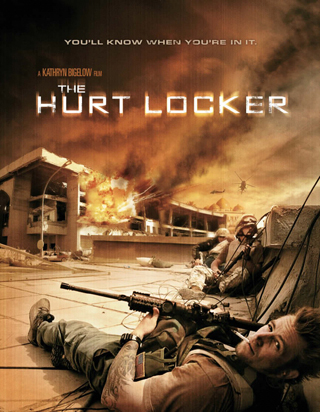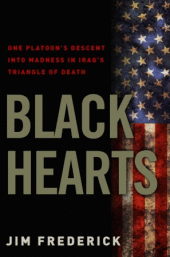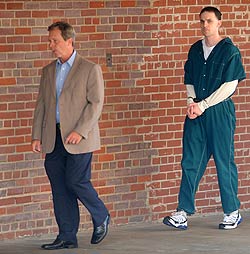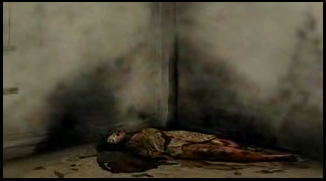WANTED TO MAKE FILM WITH BROADER APPEAL THAN DE PALMA'S
 Paul Greengrass's Iraq-themed Green Zone was released a couple of weeks ago to indifferent critical reception. Some felt the film tried to turn a non-fiction story into a Jason Bourne-type action/adventure and played too loosely with facts, while some appreciated Greengrass turning the subject of the Iwaq war and the search for mysterious WMDs into something audiences could ingest. Prior to the film's release, Greengrass himself discussed with Coming Soon's Edward Douglas why he wanted Green Zone to be something different than his United 93, and how his three most recent films developed from an interesting continuum:
Paul Greengrass's Iraq-themed Green Zone was released a couple of weeks ago to indifferent critical reception. Some felt the film tried to turn a non-fiction story into a Jason Bourne-type action/adventure and played too loosely with facts, while some appreciated Greengrass turning the subject of the Iwaq war and the search for mysterious WMDs into something audiences could ingest. Prior to the film's release, Greengrass himself discussed with Coming Soon's Edward Douglas why he wanted Green Zone to be something different than his United 93, and how his three most recent films developed from an interesting continuum:In actual fact what happened was, after I made "[Bourne] Supremacy" which was summer 2004 I actually went out to lunch with Stacey Snider, who's been running head of Universal. She said, "What do you want to do next?" I said, "Well, I don't know, but I definitely want to be between 9/11 on the one hand here and the war in Iraq here." I wouldn't have called it the war in Iraq 'cause bear in mind, we're only a year after (it started). I made that film throughout that whole thing. I started it just as they invaded really. I said, "I don't know quite what the story (will be), but I'll find a story that I want to make. Maybe it'll be a true story, maybe it'll be a fictional story. I just don't know, but I'll go off and I'll figure it out and I'll come back." She said, "Oh great, okay, off you go."
Well, one thing happened and another thing happened. As it turned out, though I didn't know that then, it became two separate films 'cause the following early summer I decided to make "United 93," one film about a true story, very scrupulously kind of fact-driven about that central event of 9/11. I always knew I was then gonna go and make "Bourne Ultimatum." As soon as I made that, it all seemed to make sense, because I went, "Oh, okay, I get it now. I'm gonna do '93' then I'm gonna go and do a big 'Bourne' movie and then I'm gonna do something about Iraq, I don't know quite what." So I'm doing "[Bourne] Ultimatum" and I'm puzzling away what that film beyond "Ultimatum" was gonna be. I'm talking with Brian Helgeland who's a mate of mine; we'd worked together on "Bourne Supremacy" and he's a fantastic writer, and I said, "If you don't want to come and do this with me," and he said, "Sure." We're going back and forth, and to both of us, it was very obvious, several things that were at the heart of this film. Firstly, the whole point of doing the film really only worked if you were making a film that had broad appeal. In other words, to follow it up by making another "United 93"-type film didn't feel quite right 'cause I'd sorta done "United 93." I did think about it. I did think about doing a small film, but it felt to me like other people were doing that.
"THAT AUDIENCE WAS EXACTLY THE AUDIENCE THAT WAS BEING ASKED TO FIGHT THIS WAR"
Douglas then interjects, "Right, I was curious about that, because there were a lot of people making Iraq movies – Brian De Palma for instance." And then Greengrass continues:
Exactly and I sort of thought that to me, that didn't feel right. I wanted to make a film with broad appeal. Why? For this simple reason that you couldn't make a "Bourne" film--and this was my second one--without being very aware that there was a big audience of particularly young people who were coming out and really loved those movies. Of course, that audience was exactly the audience that was being asked to fight this war. The young boys who were being asked to go and fight this thing, were going to see "Bourne" movies. On the other hand, right around the other side of the spectrum, the young kids who were most opposed to this war were also going to see "Bourne" movies, see what I mean? They're not going to see small art house movies about Iraq, so to me it was like I want to make a film that those people are gonna want to go and see. It's a broad audience film, okay? Next, the whole point about the "Bourne" films was that when you distill a "Bourne" film down, what is it? Obviously, it's a conspiracy action thriller, which is a genre everybody loves.
Greengrass discusses his rationale that Green Zone needed to be somewhat recognizable as the very thing he and Matt Damon are known for. "So here's the question," he says to Douglas, "if you liked Bourne Ultimatum, will you be disappointed with this film?" Douglas then replies, "I don't know. It's hard for me to say because like I've said, I've seen far too many Iraq movies." To which Greengrass stresses...
It's nothing to do with Iraq movies. If you saw "Bourne Ultimatum" and liked it, would you be disappointed with this? 'Cause that's the prism through which people are gonna come to this, not through Brian De Palma's film 'cause they're never gonna have seen it. No disrespect to those movies, but that's the issue here. In "Bourne Supremacy" and "Bourne Ultimatum," I tried to push the envelope with those movies as close to the real world. "Ultimatum" felt like it was ripped out the headlines, didn't it? With the water boarding and the war on terror and all that stuff in there, and the journalism and the source and it felt very, very strongly contemporary.




 After months of avoiding any kind of political slant toward the war in Iraq whatsoever in discussing her film The Hurt Locker, Kathryn Bigelow told
After months of avoiding any kind of political slant toward the war in Iraq whatsoever in discussing her film The Hurt Locker, Kathryn Bigelow told  A new book out today by TIME magazine's Jim Frederick examines the real life story of the soldiers whose actions inspired the Brian De Palma film Redacted. Frederick's Black Hearts draws on interviews with soldiers from the unit known as "the Black Heart Brigade," with a critical eye toward the leadership, or lack thereof, involved in the soldiers' day-to-day activities. The book, subtitled "One Platoon's Descent Into Madness In Iraq's Triangle Of Death," does not mention De Palma's film. TIME magazine is running two excerpts this week:
A new book out today by TIME magazine's Jim Frederick examines the real life story of the soldiers whose actions inspired the Brian De Palma film Redacted. Frederick's Black Hearts draws on interviews with soldiers from the unit known as "the Black Heart Brigade," with a critical eye toward the leadership, or lack thereof, involved in the soldiers' day-to-day activities. The book, subtitled "One Platoon's Descent Into Madness In Iraq's Triangle Of Death," does not mention De Palma's film. TIME magazine is running two excerpts this week: 

 According to
According to 
 Two years after Brian De Palma's Redacted had its world premiere in Venice, the collective known as
Two years after Brian De Palma's Redacted had its world premiere in Venice, the collective known as 
